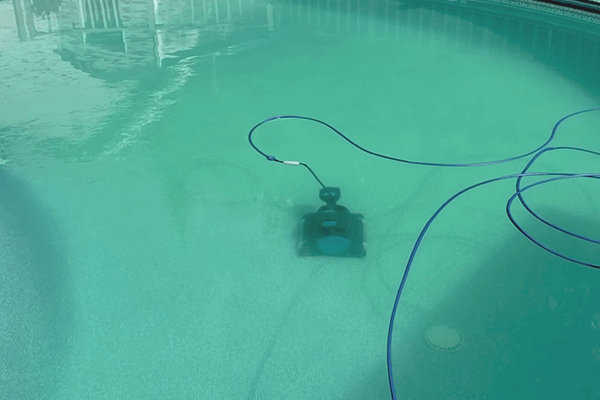A pool is an excellent addition to any home, but it also comes with a lot of responsibility. To keep your pool blue and in tip-top shape, you need to perform regular maintenance tasks. These tasks may seem like a hassle, but most are actually quite straightforward. Plus, by keeping up with these tasks, you’ll be able to extend the life of your pool and avoid costly repairs down the road. So, what are some of the standard pool maintenance tasks you should be doing? Let’s take a look.

Test the Water Quality
It’s important to test pool water quality regularly to ensure a healthy and enjoyable swimming experience. There are a few different ways to test water quality, but the most common method is to use a pool test kit. Test kits usually contain chemicals that change color when exposed to different levels of chlorine, pH, and alkalinity. Those maintaining a saltwater pool will also have to check the salinity level.
To use a pool test kit, you will need to take a sample of pool water and add the chemicals one at a time. After adding each chemical, you will compare the color of the water to a chart included with the kit. This will give you a reading for each element being tested. It’s important to test all three components regularly, as imbalances can cause problems such as skin irritation or cloudy water.
Clean the Debris
You should regularly clean any debris that has accumulated in the pool. This includes leaves, twigs, insects, and anything else that has made its way into the water. The best way to remove debris is with a net skimmer. You should also brush down the walls and floor of the pool every week to prevent algae from growing.
It’s also important to keep your pool skimmer basket clean, as debris can clog up the basket and affect your pool’s circulation. You should empty the basket at least once a week, and more often if needed. To do so, turn off the pool pump, remove the basket from the skimmer, and empty it into a trash can. Once you’ve finished cleaning the basket, put it back in the skimmer and secure it in place.
Vacuum the Pool
In addition to brushing down the walls and floor, you should also vacuum the pool once a week. This will help pick up any small debris that the net or skimmer has missed. It will also help remove dirt and sand from the bottom of the pool. There are two main ways to do this: using a manual vacuum or a robotic one.
Manual vacuums are the more traditional option, requiring you to physically move the vacuum around the pool. This can be time-consuming, but it’s generally cheaper than buying a robot. Still, despite the higher cost, robot vacuums are becoming increasingly popular as they can automate the cleaning process.
Run the Pump
Many pool owners are unsure how often they should run the pool pump, which is the first step in the pool’s circulation system. While it may seem like it would be more efficient to only turn on the pump when the pool is being used, this can lead to several problems. Primarily, if the pump is turned off for too long, the water in the pool will become stagnant and stale. This can lead to the growth of algae and other harmful bacteria.
While it would be nice to keep the pump running 24/7, it would be costly. Most recommend having the pump on for eight to 12 hours a day, and you can further save money by running the pump during non-peak electricity hours.
Check and Clean the Filters
Your pool’s filtration system is responsible for keeping the water clean. That’s why it’s important to check and clean your filters regularly—at least once a month, but more often if you use your pool frequently. There are different kinds of pool filters, so you’ll want to check the manufacturer’s directions for what yours needs. You will also need to backwash the filter on occasion. Backwashing involves reversing the flow of water through the filter to flush out all dirt and debris.
So how do you know when to clean your pool filter? There are a few telltale signs. First, take a look at the filter pressure gauge. If it’s reading higher than usual, that’s an indication that the filter is becoming clogged. You may also notice that the water is starting to look cloudy or dirty, even after you’ve recently vacuumed the pool.
Shock the Pool
Shocking a pool is an important part of pool maintenance. Periodically, most pools will need to be shocked to remove excess bacteria and other contaminants. The process of shocking a pool involves adding a large amount of chemicals (shock) all at once, which quickly raises the chlorine levels and kills off any unwanted organisms.
When shocking a pool, always follow the manufacturer’s instructions and use caution. You’ll want to wear gloves and eye protection, as shock may release gas that can irritate the skin and eyes. And it’s best to shock a pool at night, as the sun will otherwise burn it off.
Clean the Area Around the Pool
Whether your pool has a deck or just concrete surrounding it, it’s important to keep the area around it clean. If your pool has a deck, you’ll need to sweep it regularly and wash it down with a hose to remove dirt and debris. You should also check the deck for signs of wear and tear, such as cracked or chipped wood, and make repairs as needed.
Even if your pool doesn’t have a deck, keeping the area around it clean is important. This means sweeping concrete surfaces and removing any debris that could clog the drain. It’s also important to inspect concrete for cracks or chips, and make repairs as necessary. You’ll want to keep an eye out for any algae growth that could make the surface slippery.
Keep Your Pool in Good Condition
Owning a pool is a fun and rewarding experience, but it does come with some responsibility. Luckily, by following these tips you can easily keep your pool in tip-top shape all season long. These are just some of the standard tasks that you can do yourself to maintain your pool throughout the year. By taking care of these tasks on your own, you can save money on professional services while still keeping your pool looking its best all season long!
